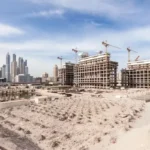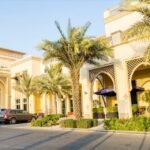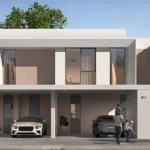Now Reading: Remote Work Shapes Housing Choices in the UAE
-
01
Remote Work Shapes Housing Choices in the UAE
Remote Work Shapes Housing Choices in the UAE

The rise of remote work and housing choices UAE has seen a significant transformation in residential preferences. As flexible work arrangements become more common, residents are reconsidering what they need from their homes, communities, and neighborhoods.
This shift is reshaping the real estate landscape in Dubai, Abu Dhabi, and other emirates, creating opportunities for developers, investors, and urban planners to adapt to changing demands.
How Remote Work Is Changing Housing Preferences
Remote work allows employees to spend more time at home, which has influenced several housing trends:
- Larger Living Spaces: Home offices and dedicated work areas are increasingly sought after.
- Suburban and Community Living: Families prefer spacious homes with access to parks, schools, and outdoor spaces.
- Co-Living and Shared Spaces: Professionals and expatriates seek flexible, community-oriented housing options.
- Amenities for Work-Life Balance: High-speed internet, quiet zones, wellness facilities, and recreational areas are now top priorities.
- Proximity to Essentials: Residents value nearby supermarkets, healthcare, and delivery services.
Trends Observed in the UAE Housing Market
Demand for Villas and Townhouses
Communities like Arabian Ranches, Mudon, and Saadiyat Island are seeing increased interest as families move away from high-density apartments to homes with space for offices and outdoor activities.
Growth of Co-Living Spaces
Urban centers like Dubai Internet City, Business Bay, and Jumeirah Lake Towers have introduced co-living concepts catering to young professionals and remote workers seeking community and flexible leases.
Smart Homes and Technology Integration
High-speed connectivity, smart lighting, and climate control have become essential for remote workers, driving developers to include tech-enabled solutions in new projects.
Wellness-Oriented Communities
Suburban developments with walking trails, gyms, and parks appeal to remote workers who prioritize lifestyle and well-being alongside functional home office setups.
Case Studies in Dubai and Abu Dhabi
Dubai Hills Estate
With larger villas, high-speed internet infrastructure, and ample green spaces, Dubai Hills Estate has attracted families working remotely who want a balanced lifestyle.
The Sustainable City, Dubai
Combining eco-friendly homes, walking trails, and wellness amenities, this community appeals to remote workers seeking health-focused living in a sustainable environment.
Al Raha Beach, Abu Dhabi
Offering modern townhouses and easy access to essential services, Al Raha Beach has seen growing demand from professionals working remotely in Abu Dhabi.
Benefits for Residents
- Work-Life Integration: Flexible layouts support both professional and personal needs.
- Health and Wellbeing: Access to green spaces and wellness amenities enhances lifestyle quality.
- Reduced Commute Stress: Remote work reduces daily travel, allowing for suburban living.
- Community Engagement: Co-living and neighborhood amenities foster social interaction.
Opportunities for Developers and Investors
- Growing Market Segment: Remote workers represent a new, long-term tenant base.
- Premium Pricing: Properties with home office spaces and modern amenities command higher rents or sale prices.
- Flexible Leasing Models: Short-term and co-living options cater to dynamic remote worker needs.
- Sustainability and Smart Home Features: Integrating wellness, tech, and energy efficiency increases market appeal.
Challenges in Adapting to Remote Work Trends

- Infrastructure Requirements: High-speed internet, smart systems, and reliable utilities are essential.
- Balancing Density with Space: Designing homes that accommodate offices without compromising living areas.
- Community Design: Incorporating communal workspaces, green areas, and wellness facilities requires thoughtful planning.
- Market Awareness: Educating buyers and tenants about new lifestyle features is key to adoption.
The Future of Housing in a Remote Work Era
The trend of remote work and housing choices UAE is expected to continue shaping residential developments:
- Suburban Expansion: Demand for villas and townhouses in quieter neighborhoods will increase.
- Hybrid Housing Models: Co-living spaces integrated with wellness and technology features.
- Smart Home Integration: Homes with connected devices for work, energy efficiency, and security.
- Sustainable Communities: Eco-friendly developments supporting remote work and lifestyle needs.
- Flexible Real Estate Offerings: Short-term leases, home-sharing, and multi-functional spaces will gain popularity.
Conclusion
it is transforming the UAE’s real estate landscape, influencing how residents choose homes and communities. By prioritizing space, connectivity, wellness, and lifestyle, the remote work and housing choices UAE trend is creating new opportunities for developers and investors.
Homes designed for remote work are not just functional-they provide an enhanced living experience that blends productivity, comfort, and well-being. As remote work continues to shape urban life, residential developments that embrace these trends will see higher demand, occupancy, and long-term value.
Follow us on: Instagram
Read More:Dubai Climate Goals Reshape Real Estate Development



















